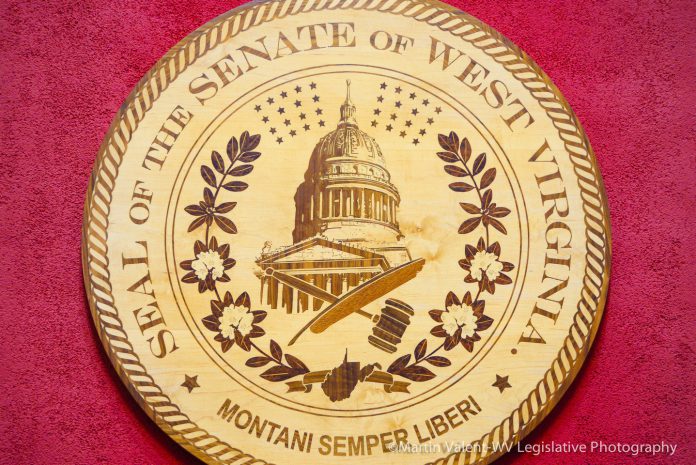As of 4 p.m., Wednesday, January 15, 2003, the seventh day of the 2003 Regular Legislative Session, 160 bills have been introduced in the State Senate.
A sampling of bills introduced this week:
Senate Bill 15 would prohibit open containers of nonintoxicating beer and alcoholic beverages in the passenger areas of motor vehicles on the public roads of the state. The bill is intended to conform the state’s laws applying to the use and possession of beer and alcoholic beverages in motor vehicles with federal law.
Senate Bill 119 would dissolve the Division of Personnel and the State Civil Service System. The bill provides that the various agencies of government would assume responsibility for their own hiring and firing.
Senate Bill 115 would provide for a state do-not-call list by which individuals may indicate that they do not wish to receive unsolicited telephonic sales calls. The bill would also make calling a number on the do-not-call list an abusive telemarketing act or practice.
Senate Bill 24 would change the name of West Virginia State College to West Virginia State University. All things related to the function, conduct and control of the institution shall remain the same.
Senate Bill 152 would authorize the commercial sale of venison in restaurants. The bill states that any game birds or game bird meats sold by licensed retailers or venison sold by a licensed commercial retailer and raised for that purpose may be served at any hotel, restaurant or other licensed eating place in this state.
Senate Bill 78 would restrict mandatory overtime in certain health care facilities. The bill would establish a maximum workday and workweek for certain hourly wage health care facility employees, beyond which the employees cannot be required to perform overtime work, in order to safeguard their health, efficiency and general well-being as well as the health and general well-being of the persons to whom these employees provide services.
Senate Bill 149 would create the Prescription Drug Price Assistance Project. The bill would provide for eligibility criteria, fees and a co-payment schedule, create the “prescription drug price reduction fund”, set forth sources for the fund, provide that the Secretary of Health and Human Resources may transfer moneys from the fund to elderly low-cost drug programs established or maintained in this state, and authorize the department to coordinate with other programs.
Senate Bill 143 would provide high school diplomas to veterans who left elementary, middle or high school prior to high school graduation due to service in the military.
Senate Bill 70 would establish a minimum speed limit of 55 miles per hour for driving in the left hand or passing lane on interstate highways. It provides a fine of $50 plus court costs for violations.
Senate Bill 23 would allow for corporate and personal income tax for employers who provide or pay for child day care services for their employees’ dependent children.
Senate Bill 49 would exempt farming equipment and livestock from the personal property tax. This would include all implements, equipment, machinery, vehicles, supplies, crops and livestock used to engage in commercial farming.
Senate Bill 107 would create a “sales tax holiday” for purchase of back-to-school clothing and school supplies during a three-day period in the beginning of August of this year.
Senate Bill 88 would create the Tobacco Free School Act. The bill would prohibit possession and use of tobacco products in all school buildings and grounds, as well as eliminate the exemption from tobacco restrictions areas not used for instructional purposes. This legislation would also increase the penalties for violations of this act and authorize the State Board of Education to further restrict tobacco use. It would also permit law-enforcement officers to issue warnings in lieu of citations for violations.
Senate Bill 129 would increase the penalties for use or possession of tobacco or tobacco products by a person under eighteen years of age. The bill would also increase fines and community service requirements, and upon a second offense, provides for revocation of the person’s junior or graduated driver’s license until 18 years of age, or if the person does
not yet have a junior or graduated driver’s license, the person is ineligible to apply for any type of driver’s license until 18 years of age.

